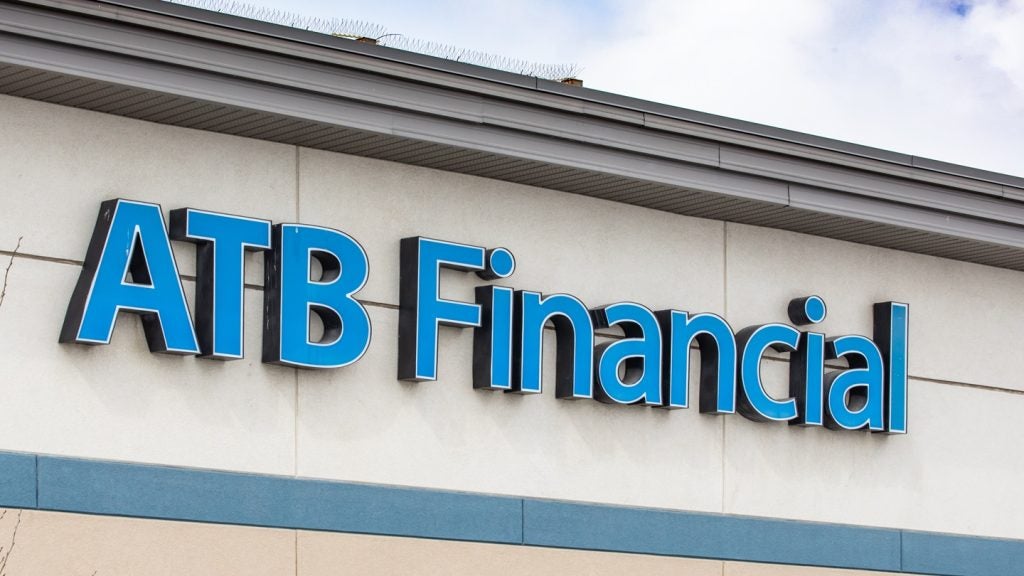
Three months into the job and
Rory Tapner, the new chief executive of RBS’s Wealth division, is
setting in place a grand plan for his operation. PBI
speaks to Tapner about how this calls for Coutts & Co to become
a true global wealth brand that can compete head on with the very
best in the business.
A head-to-toe dissection of the
sprawling parts of the RBS wealth management operation is being
surgically undertaken by Rory Tapner, the former UBS Asia-Pacific
head, after he joined as the RBS Wealth division’s chief executive
late last year.
has inherited major legacy issues,
including the confusing multiple private banking brands in the
group – ranging from Coutts itself through to RBS Coutts, Adam,
Drummonds, Child and NatWest Private Banking. In addition, parts of
this disparate organisation have been allowed to stagnate, in terms
of systems and the professional culture of advisers, rival firms
claim.
None of this deters Tapner. Hired
by RBS retail banking chief Brian Hartzer, he has a clear mandate
from the RBS board to make the bank’s wealth operations a
winner.
How well do you really know your competitors?
Access the most comprehensive Company Profiles on the market, powered by GlobalData. Save hours of research. Gain competitive edge.

Thank you!
Your download email will arrive shortly
Not ready to buy yet? Download a free sample
We are confident about the unique quality of our Company Profiles. However, we want you to make the most beneficial decision for your business, so we offer a free sample that you can download by submitting the below form
By GlobalData“RBS is exiting some businesses and
right sizing others for current market conditions. Wealth is a
business which they see as important to the future,” says the
banker, whose career dates back to iconic city names like SG
Warburg and Rowe & Pitman.
“It’s a sticky, annuity type of
business that is an invaluable franchise,” he adds.
Under-investment chipped
Coutts brand
and the other wealth businesses
have suffered from under-investment in the past by RBS.
“Whoever owned these brands in the
past was not convinced enough to invest in them,” Tapner says,
stressing that, despite the current level of interest rates and
shape of the yield curve, the businesses are all operating
profitably.
“I suppose it was a case of, ‘if
you didn’t ask, you didn’t get,’” he says, although acknowledging
that the credit crisis and state bailout of RBS has kept Edinburgh
executives distracted by other issues.
Despite such neglect, Coutts itself
can boast some 74,000 clients in the UK, ranking second to UK
market leader Barclays Wealth. The RBS Wealth division had total
client asset under management of £81.2bn ($129bn) to 30 June 2010,
with half (£40.6bn) coming from Coutts UK and about £27.8 in RBS
Coutts, its international arm.
“I’ve been pleasantly surprised by
the welcome given to me by our private banking colleagues. They
know I have a mandate to energise and grow the business. A typical
reaction has been, ‘The time has come to do this properly and
sustainably.’”
As word spreads in the industry
that Coutts wants to up its game, the bank is starting to get calls
from executives at rival firms inquiring about job opportunities –
“a gratifying development,” Tapner says.
The banker is keen to stress that,
despite the turmoil surrounding RBS, the wealth business has fared
well.
“We’ve not really lost clients and
I have found indeed that Coutts has a very impressive client base,”
he says.
Tapner also speaks glowingly about
the Coutts brand.
“[Coutts is] possibly the greatest
brand in private banking. We have a combination of a great bank and
a great heritage – that’s a very powerful mix and one that I think
will allow us to grow faster internationally.”
Coutts won’t become a
‘product-pusher’
Tapner rejects his competitors’
jibes that the Coutts image was somewhat tarnished by its drive
into the sports and entertainment client segments in recent
years.
“Coutts has to be a modern bank
catering for a modern society. I think my predecessors made the
right decision to diversify into segments such as entrepreneurs. In
fact, the sports and entertainment sector has worked very well for
us,” he adds.
Will Coutts be pursuing the ultra
high net worth segments, like so many other competitors?
“We want the very wealthy client
but the business has to be developed with care and in a smart way,”
says Tapner.
A lifelong investment and corporate
banker, Tapner was responsible for introducing the ‘one bank’
concept to UBS in Asia, melding investment and private banking
together. Will he harness RBS’s investment banking closely to
Coutts?
“At UBS, I learned that the really
big clients can be served by this type of a combined approach,” he
says, but he declares that Coutts will never become a
“product-pusher” as a result of allowing investment banking to
determine the services and products that clients will receive.
“We can get a lot of momentum out
of investment banking, but the private client’s interest will
always be paramount. If they want an investment banking service,
then the job of our advisers is to point them in the direction
where they are likely to get the best deal,” says Tapner.
He adds: “For me, the one-bank
concept has always been about ease of access by the client to a
whole range of services, be it investment or private banking.
Obviously, we will work with RBS investment banking and also other
investment banks.”
Open architecture
concerns
As for open architecture, Tapner
supports this approach to third party investment products but with
careful constraints.
“Often, open architecture is about
selling anything anywhere, regardless. It is open to abuse. Some
firms really have sales organisations under the disguise of
advisory operations.
“The job is to select the best in
class products from a determined range of quality suppliers. Then
you are doing your job as advisers.”
As for those legacy issues, Tapner
can already claim success – in terms of putting the whole of the
RBS wealth operations on a single platform for key functions like
state of the art client reporting. The operating platform, based on
Avaloq technologies, should cover the worldwide group by the
third-quarter of the year. That will prove a key backbone in
allowing Coutts to grow at home and abroad, promoting its
cross-border private banking services.
When asked about the multiple
branding legacy and suggestions that some small banks within the
RBS group will be absorbed within the Coutts name, Tapner chooses
his words carefully.
“Coutts is a superb brand and the
priority must be to promote Coutts, but the sister banks have a
valuable role in their chosen areas of expertise and geographies,”
he says.
Eyeing up
Brazil
While Coutts is to be expanded
internationally, some fine tuning will take place along the
way.
“We serve clients in some 175
countries around the world. So it is likely we will slim down some
of this geographical exposure. In terms of growth prospects, the
immediate priorities are Asia, including Hong Kong, Singapore,
Indonesia and Russia, as well as our UK home base.
“We also want to look at Brazil at
some point. We find continental Europe very attractive, and as a UK
bank we have the advantage of an EU ‘passport’ to help us
grow.”
Will that mean a hiring blitz by
Coutts? Tapner is relaxed on this subject, intimating that the bank
already has a skilled and extensive advisory force. In Asia,
regional chief executive Nick Pollard has recruited some 150 staff
in recent months, more than making good the mass defections to BSI
two years ago.
Tapner emphasises it is more about
raising the game rather than the numbers.
“Our people want to be part of an
increasingly successful organisation. Frankly, our advisers have
not been challenged enough. So I am going to turn up the
temperature a little bit (on performance). I would like to see us
improve share of wallet, for example,” he says.
Priority number one:
Marketing
Word is that Tapner may be making a
number of senior hires to reinforce Coutts’ top executive team,
adding to Michael Morley, Coutts chief executive, and Nick Pollard
in Singapore. While some rivals contend that he will need a top
risk manager, operations manager and possible strengthening of the
financial director team to keep pace with the growth plan, Tapner
counters that it is the marketing function that needs immediate
reinforcement – a key area at a time of the coming brand-building
push.
“The marketing function is really
important – to promote the whole range of Coutts’ best-in-class
services like advisory and philanthropy,” he says. “A good brand
will always punch above its weight. Our existing clients have
already bought into the Coutts brand so now we have to get the
attention of prospective clients. It is here where I have to be
careful about brand dilution.”
Coutts is emphasising its
investment management capabilities much more, a strategy set in
motion by Michael Morley last year to complement its acknowledged
banking and credit skills.
“Our investment performance has
been much better than I had expected and compares favourably with
many of our major competitors,” Tapner says.
Family offices in the
crosshairs?
Coutts does not have any plans for
acquisitions but it is positioning itself for what Tapner believes
will be the coming consolidation of wealth management, as some
players find the cost of regulations like RDR, updating back office
systems and platforms and hiring quality talent beyond them. That
will include likely rationalisation in the family office
sector.
“I think that the family office
managing, say, about $1bn on behalf of five or so families will
increasingly find life very difficult. Many just will not be able
to justify the costs of keeping up the pace over time,” observes
Tapner. “Coutts, with its advanced platform, expertise and
reputation, would make a very good home for these offices. We could
absorb them seamlessly. Who else would they go to?”
So, what are the yardsticks for
measuring the successful expansion of RBS’s wealth operations? At
home, it has that solid second place position ranked by client
numbers. But on a global scale, it can only aspire to 27th place in
a ranking of the top 50 global wealth managers – well behind UK
rivals like Barclays Wealth.
Tapner will only say: “At present,
two thirds of our business is in the UK and the rest international.
I would expect that ratio to be reversed over time as we embark on
our global build out.”
Thomas Coutts would no doubt approve.







